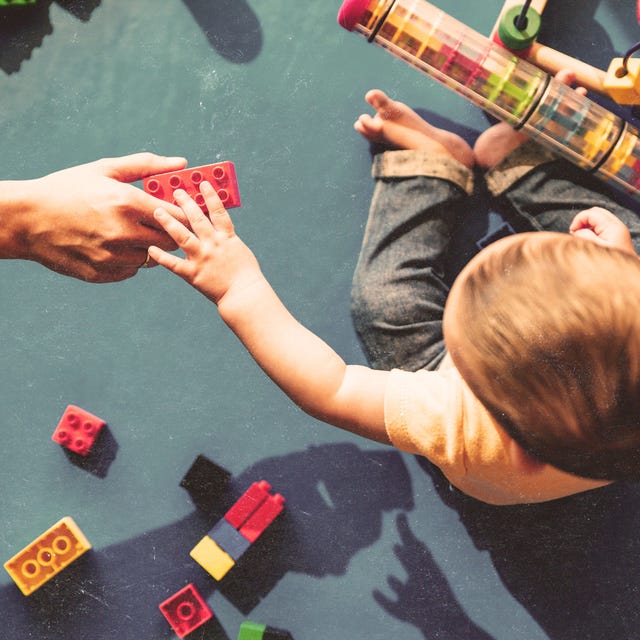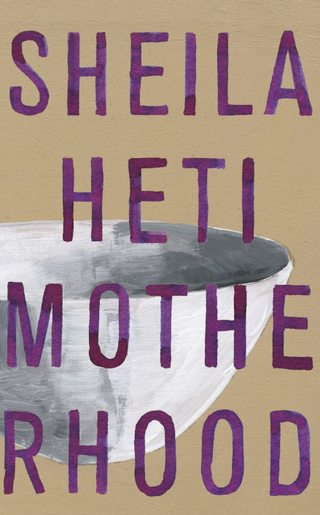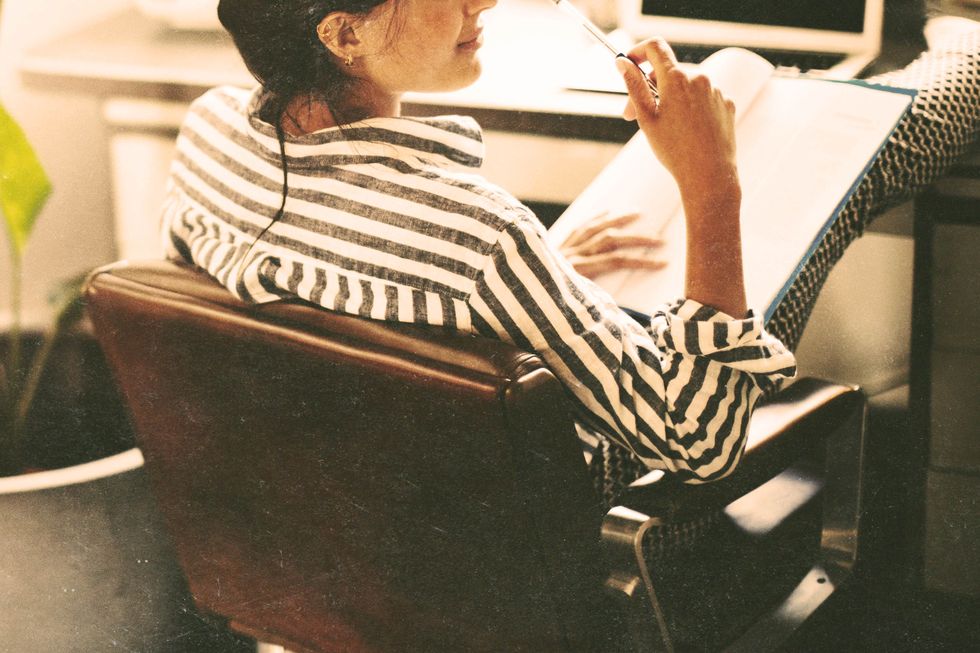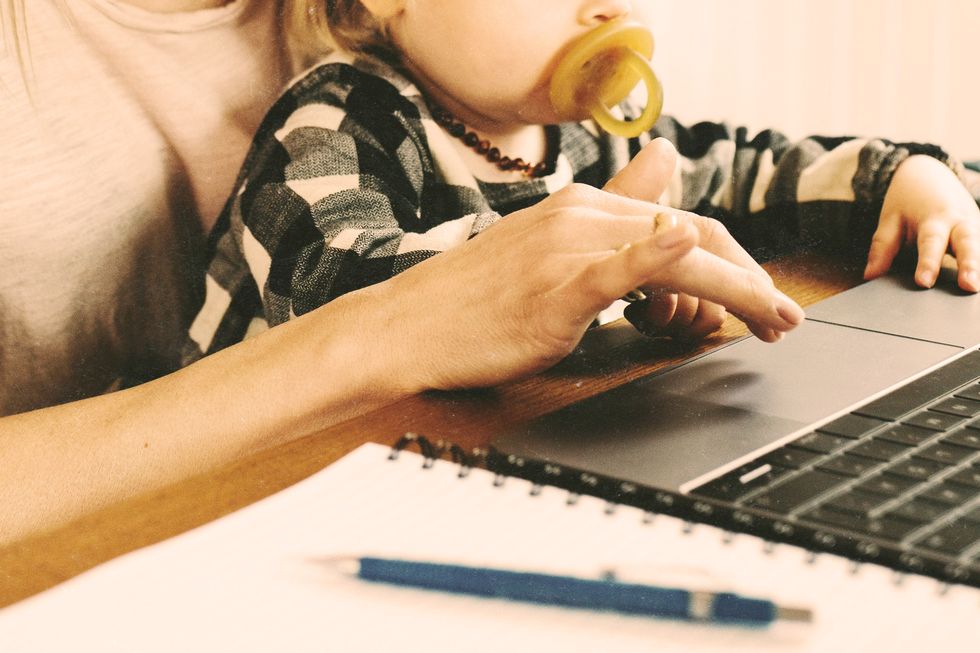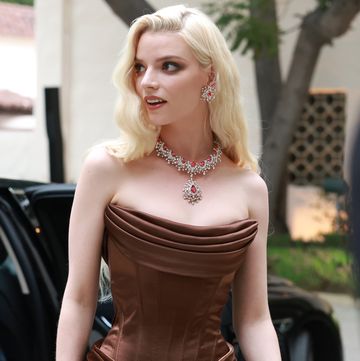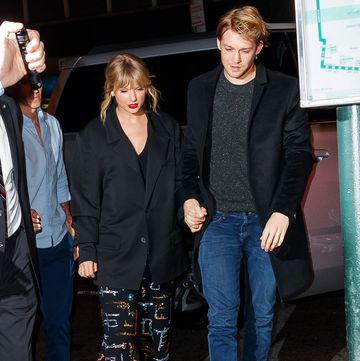If you’ve ever read The Bell Jar or momentarily perused Sad Girl Tumblr, you’re likely familiar with one of Sylvia Plath’s most evocative passages, which is widely known as the fig tree quote: "I saw my life branching out before me like the green fig tree in the story. From the tip of every branch, like a fat purple fig, a wonderful future beckoned and winked,” the narrator writes. She goes on to enumerate the various paths her life could possibly take, some of which will sound all too familiar to female readers today: a husband and a family; a high-powered academic or journalistic career; world travel and casual sex with a revolving door of Hungarian men. Yet she is unable to decide, and is ultimately so frozen in ambivalence that she watches as “the figs begin to wrinkle and go black, and one by one, they plopped to the ground at my feet.”
Sheila Heti’s new book Motherhood is essentially a 300-page meditation on Plath’s fig tree metaphor, except for Heti, and for many women of her generation, the branches have been pared down dramatically. Far too jaded and exhausted by 2018’s parade of misogynistic atrocities to even consider the possibility that they can “have it all,” women are now faced with the choice between just two fruits: the joys of motherhood, and a high-powered and successful career. And frankly, neither of them taste all that great.
This is the dichotomy depicted in Heti’s Motherhood, a sprawling, stream-of-consciousness work that can best be described as a diligent transcription of a conversation you overheard at brunch. It’s not a particularly unique or original conversation: the decision whether or not to have kids has been the basis of thinkpieces and manifestos for decades, each side presenting their argument with the tight-smiled, slightly defeated, would-rather-be-anywhere-else-but-here air of a token conservative on an MSNBC panel. Yet Motherhood doesn’t take sides in what Heti's unnamed narrator refers to as the “civil war” between moms and non-moms so much as it engages with a third demographic: women who aren’t abstaining from or embracing motherhood, but simply don’t know whether they want kids yet.
Ultimately, the narrator's ambivalence is a MacGuffin of sorts, because by page seven she’s pretty clearly shown her hand. “It’s going to be so hard not thinking about myself, but rather thinking about the soul of time [italics hers],” Heti writes. If you’re in your late thirties, as the narrator is throughout much of the novel, and you have the mental energy to even begin to grapple with the concept of the soul of time, then clearly you haven’t had and won’t be having a kid anytime soon.
And here, I suppose, is where I show my own hand: As someone who was a member of that third group, but who recently joined the motherhood side of the battlefield, I guess I now have a vested interest in this dialogue. After years of internally debating whether or not I wanted kids, I was shocked to find how quickly the answer came to me when I discovered I was pregnant in my mid-twenties and decided to continue my pregnancy. But what was perhaps even more shocking to me was how I immediately felt the need to rationalize or defend my decision—not because I regretted it, but because, as an artistically inclined woman in my twenties, I knew I would be viewed by my peers as someone who had chosen to wander down the well-trodden path of motherhood and domesticity instead of opting for a life of self-empowerment and sexual adventure, which is widely considered the millennial woman’s birthright. Worse, my decision to become a mother in my twenties, while not unique from a larger demographic standpoint, is somewhat unique in my industry, where late nights in newsrooms and 30-something women toiling in unpaid internships are fairly common. I feared (and still, in my darker moments, do fear) that becoming a mother would be tantamount to shaking the branches of my tree and watching all of the figs fall down at once.
So far, this hasn’t happened yet, but it is a fear that Heti's protagonist shares—and frankly, rightfully so. She spends much of the novel fretting over whether motherhood will kill her art—and while in the book, it’s slightly unclear what this actually entails (like many writers, Heti depicts “writing” not so much as the grueling, unsexy process it actually is, but largely as something one does in between dinner dates with Dutch publishers and cadging cigarettes off of busboys), there is truth to the idea that the demands of raising a little person siphon off the time and energy required to devote oneself to artmaking. “One can either be a great artist and a mediocre parent, or the reverse, but not great at both,” the narrator’s boyfriend declares at one point in the novel, underlining her suspicions.
It’s when the narrator starts to craft her own idea of what motherhood must be like that the book starts to fall apart. At points during the novel, she seems to be of the mind that motherhood is nothing less than the easy way out, proffering an endless wealth of creature comforts, kind of the same way Rush Limbaugh used to talk about welfare queens. “The hardest thing is to actually not be a mother—to refuse to be a mother to anyone,” Heti writes of the constant social pressure to become a parent. “To not be a mother is the most difficult thing of all.” I urge Heti's narrator to sit on the floor with my son for 10 whole minutes with nothing but a pile of his toys. No cell phone, no Netflix, nothing. If she doesn’t quietly pass away from boredom, let’s see what she says is the most difficult thing of all.
The truth is that for middle-class white women like Sheila Heti (and the women who buy Sheila Heti books), choosing not to be a mother shouldn't be that difficult; although it is not yet the statistical norm, it is well on its way to becoming so. As the age of first-time motherhood has risen and the birth rate has declined, choosing to opt out of parenthood altogether, while still stigmatized, is not nearly as taboo as it used to be: the percentage of women who have chosen not to have kids at 45 has nearly doubled in recent years, and celebrities like Cameron Diaz and Jennifer Aniston have been vocal about the benefits of being child-free.
And yet, some ambivalence remains. Heti's narrator views herself as a sort of feminist Canadian Marlboro Woman, dolefully trudging down this lonesome road. “In a life in which there is no child, no one knows anything about your life’s meaning,” she says. “They might suspect it doesn’t have one—no centre it is build around. Your life’s value is invisible...how wonderful to tread an invisible path, where what matters most can hardly be seen.”
For a subject that produces as wide a range of experiences and opinions as motherhood does, the protagonist seems to have little interest in what anyone outside her bohemian Toronto artist circle thinks about the topic. Part of this is a function of the highly personal and self-referential nature of Heti’s work, but it’s surprising how little her narrator seems to care about the reasons why this choice is so difficult for women to make, or why motherhood is so daunting for smart, ambitious women—even though these reasons are well-documented and prime fodder for literary anger.
“A lot of time is wasted in thinking about whether to have a child, when the thinking is such a small part of it,” Heti writes. But, in the United States in particular, where access to something as simple as contraception is largely dependent on your race and income level, and nearly half of all pregnancies are totally unplanned, merely having the time to think about whether you want a child is a privilege in itself, one that Heti's narrator seems to be unaware she has. Nor does she seem interested in addressing, say, the skyrocketing costs of day care in her home country of Canada, which might contribute to the difficulty of balancing motherhood with a career; and she only briefly skewers the deeply ingrained misogyny of a culture that pits women against each other for their reproductive choices. (When Heti does turn her attention to the patriarchy, referring to pregnancy and motherhood as “a huge conspiracy to keep women in their thirties—when you finally have some brains and some skills and experience—from doing anything useful with them at all,” her writing is at its funniest and most incisive.)
Motherhood is most insightful and quotable when Heti sketches out the lose-lose situation women find themselves in, regardless of which side of the battlefield they are on. “We both have everything and nothing at all,” she says of mothers and non-mothers alike. “We are both so cowardly and so brave. Neither one of us has more than the other, and neither one of us has less….there is an exact equivalence and an equality, equal in emptiness and fullness, equal in experiences had and equal in experiences lost, neither path better and neither path worse, neither more frightening or less riddled with fear.”
When I first read this passage, I found myself almost having to gulp for air, so much did it resonate with me and my own experience of motherhood. Like so many women on both sides, I have spent so much time feeling like I have to apologize for or defend my decision, even though I personally feel like I have nothing to apologize for or defend. I feel like I am constantly being asked by faceless interlocutors why I would settle for such a bougie, middle-class existence. But it doesn’t ever feel like settling so much as striving to hold onto the things I have always wanted for myself, and the things I never knew I wanted in the first place, but now would find myself broken without.
This is not to say that from time to time, I don’t find myself staring up and looking at the branches on the fig tree and watching the figs wither away, with, if not regret, something akin to ironic detachment. “There goes another one!” I’d cheerily think as I’d watch one of my figs—a trip to Vietnam, an idea for a book, anything that required a significant chunk of time and energy—wither and crumple to the ground, while the growing demands of my son bloomed and flourished on one of the other branches. And for a second, I would feel the embers of sadness or regret smolder in my gut before he’d smile at me, or imitate our cat’s meow, or giggle at me pretending his doctor puppet was doing a Liza Minelli-esque cabaret show, and that feeling would wash away like rain, and the cycle would begin anew.
Yet if nothing else, the takeaway of Motherhood is that this cycle is not the function of motherhood or non-motherhood, so much as it is the eternal condition of being a woman: a constant state of dissatisfaction, where all of our choices are equally insufficient. It would be nice if we could all grab all the figs we wanted and gorge ourselves silly. But best to leave that to the gaggle of drunk men Heti observes at a bar in Dublin, who dance with gusto as Heti's narrator and her female friends discuss the prospect of having kids: “Such a large portion of your mind, at any given time, is preoccupied with the possibility,—a question that didn’t seem to preoccupy the drunken men at all.” They just keep dancing and swaying and huddling together in packs, while we fret and plan and watch the figs withering away, one after the other after the other.
